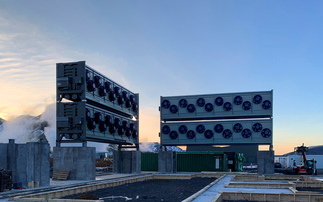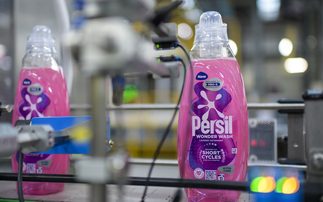Bas Bonnier at Mitsubishi Turbocharger and Engines Europe explores the fuel and carbon savings that are being unlocked by turbocharger technologies
In a world geared towards lower vehicle emissions, the turbocharger boom is just getting started. From diesel to gasoline, hybrids to fully electric cars, turbochargers will continue to be in high demand from the global automotive market.
Contrary to popular opinion turbochargers are not solely about enhancing speed. While the technology is often associated with fast, high-performance cars the reality is very different.
Modern road vehicles are commonly fitted with turbochargers to maximise fuel use and improve overall engine efficiency.
A turbocharger enhances engine performance by reusing the energy contained within exhaust gases, resulting in additional drive from the same amount of fuel. Utilising the full potential of the engine and fuel in this way also reduces the overall amount of carbon dioxide produced, making the car more environmentally friendly.
And it is those green credentials that will ensure demand for the turbocharger is likely to keep growing.
In fact, analysts from Transparency Market Research predict 10.1 per cent market growth in cars fitted with a turbocharger by 2024.
Into the future
Turbocharger technology first appeared in the early 20th century and was originally used to boost the performance of marine craft and early aircraft engines. Once the potential of the technology had been firmly established, the 1970s saw them being fitted to diesel trucks to improve fuel efficiency.
The technology soon graduated to diesel cars and was later fitted to gasoline-fuelled vehicles.
Demand for turbochargers has been on a strong upward trajectory over the past two decades, due to their proven capacity for saving energy and reducing emissions from standard internal combustion engines.
Around the globe, the market for turbocharged cars has seen annual growth of around three per cent since 2010, according to a working paper by The International Council on Clean Transportation. Looking to the future, the same growth rate would mean that by 2020 a third of all cars on the world's roads would be fitted with turbochargers, increasing to almost half by 2025.
Smaller and powerful
Automobile manufacturers can also benefit from the turbocharger boom, as the fuel efficiencies inherent in ‘turbos' enable combustion engines to be downsized.
For example, turbocharged four-cylinder engines can replace less efficient six-cylinder engines, cutting both fuel consumption and exhaust emissions, while at the same time delivering enhanced road performance.
Reduced levels of carbon dioxide and nitrogen oxide emissions assist car manufacturers to comply with increasingly strict regulatory pressures aimed at curbing emissions. Turbochargers also help car makers appeal to a growing number of environmentally conscious drivers, keen to reduce their carbon footprint.
Car manufacturers are agreed that downsizing will become one of the main tools to reduce the emissions of tomorrow's vehicles. According to industry forecasts, sales of three-cylinder vehicles are set to double by 2020, with market share of six- to eight-cylinder vehicles predicted to decrease.
Increasingly strict emission legislation and rising fuel prices have caused a spike in demand for turbocharged vehicles in the mature European market.
But future growth is set to come from emerging markets, particularly in Asia. In China, for example, growing affluence has caused a surge in the number of vehicles on the country's roads. And more stringent environmental regulations in both the US and Asia are helping to bolster global demand for turbochargers.
The way forward
Regulations aimed at protecting the environment are proving the catalyst for another transformation within the automotive market: the rapidly growing diversity of vehicle power trains - the mechanisms that convert an engine's power into motion.
Vehicle manufacturers are finding ways to apply turbo technology to new types of vehicle, including electric hybrids, battery-powered electric vehicles and fuel cell cars.
For example, a range extender developed by Mitsubishi Turbocharger builds upon turbocharger technology to provide electric vehicles with a compact backup power source when the battery runs flat. The device overcomes the issue of "range anxiety", which can be a barrier to customers looking to buy an electric vehicle.
A number of other innovations are being developed to enhance new types of power trains, each based on turbocharger technology. These include designs for electrically assisted turbochargers for hybrid vehicles, and air compressors for fuel-cell powered cars.
The turbocharger market is constantly evolving and creating new challenges, which presents the automotive industry with new opportunities to innovate and drive the market forward. It's clear is that turbochargers are set to remain a key part of the future automobile story.
Bas Bonnier is general manager of turbocharger operations at Mitsubishi Turbocharger and Engines Europe (MTEE).
Learn more about the latest trends and innovations in power generation, visit Spectra.
Spectra is powered by Mitsubishi Heavy Industries Group.
© Mitsubishi Heavy Industries, Ltd.
For more information, please contact: [email protected]







